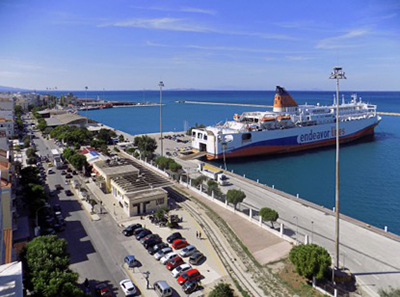
«We want the train as soon as possible!» a participant argued strongly. «We are tired of big promises, lies and mega-projects, such as a tunnel. We want to travel to Athens from the centre of Patras!» another participant continued. «Visitors should experience the city through the train» or «Proastiakos right now causes no problem, but it serves more than 8’000 passengers per day» some other argued. A question comes up: «Why do we need a tunnel for the railway?»
On 13 February 2016, a workshop of ideas was organised in Patras, Greece as part of the Code Patras Rail&City project. More than a hundred citizens as well as stakeholders of urban and railway development participated. The concept of the workshop is rooted in the idea of participatory planning. In six parallel sessions in Patras, new ideas and proposals, as well as fears and open questions, concerning rail and urban development were discussed, with the focus on how to create a new culture of urban transportation in Greece. Even though such a process was implemented for the first time in Greece, all the participants perceived this initiative positively and participated enthusiastically in the event.
How Public Opinion Reverses Previous Strategies
The workshop was organised as a part of the exhibition on the results of the test-planning process held in November of 2015 at Agora Argyri. The test-planning process is a pioneer method of solving complex spatial planning problems. It was applied in Greece to the issues concerning the railway connection between Athens and Patras at the initiative of three universities: ETH Zurich, University of Patras and National Technical University of Athens (NTUA). The railway line Athens-Patras is a component of the European core network (TEN-T, Orient-East Med.Corridor). Such a procedure founded prosperous ground in Patras due to two main reasons; the previous project studies were not sustainable and the responsible stakeholders did not agree in a common solution, but rather defending only on personal interests. The above steps lead to remarkable results:
Firstly, test-planning provided an integrated proposal including aspects of spatial and urban planning, urban and landscape design, not included in precedent solutions. Moreover, most of the responsible stakeholders agreed to collaborate for the first time. As a next step, during the three-day exhibition members of the steering committee guided more than 180 citizens in 6 planned guided tours informing them about the results. Hence a public dialogue contesting the tunnel solution began. Three months later, the workshop ended with new perspectives and a transparent overview about a possible solution. Public voices gave a clear message to everyone; reveal your agendas! The above events were the driving force for an intense dialogue between citizens, experts, NGOs and the municipality of Patras. The municipality and its followers insisted on previous strategies, illusive promises which favoured the tunnel option as the only realistic solution. Finally, the public opinion reversed the situation claiming for feasible plans and new ideas for the railway and urban development of Patras.
Theodora Papamichail is a scientific assistant at the Chair of Spatial Planning and Development. Her research focuses on spatial and urban planning towards tourism and railway-oriented development in Greece. She has participated in the CODE PATRAS project since 2013.